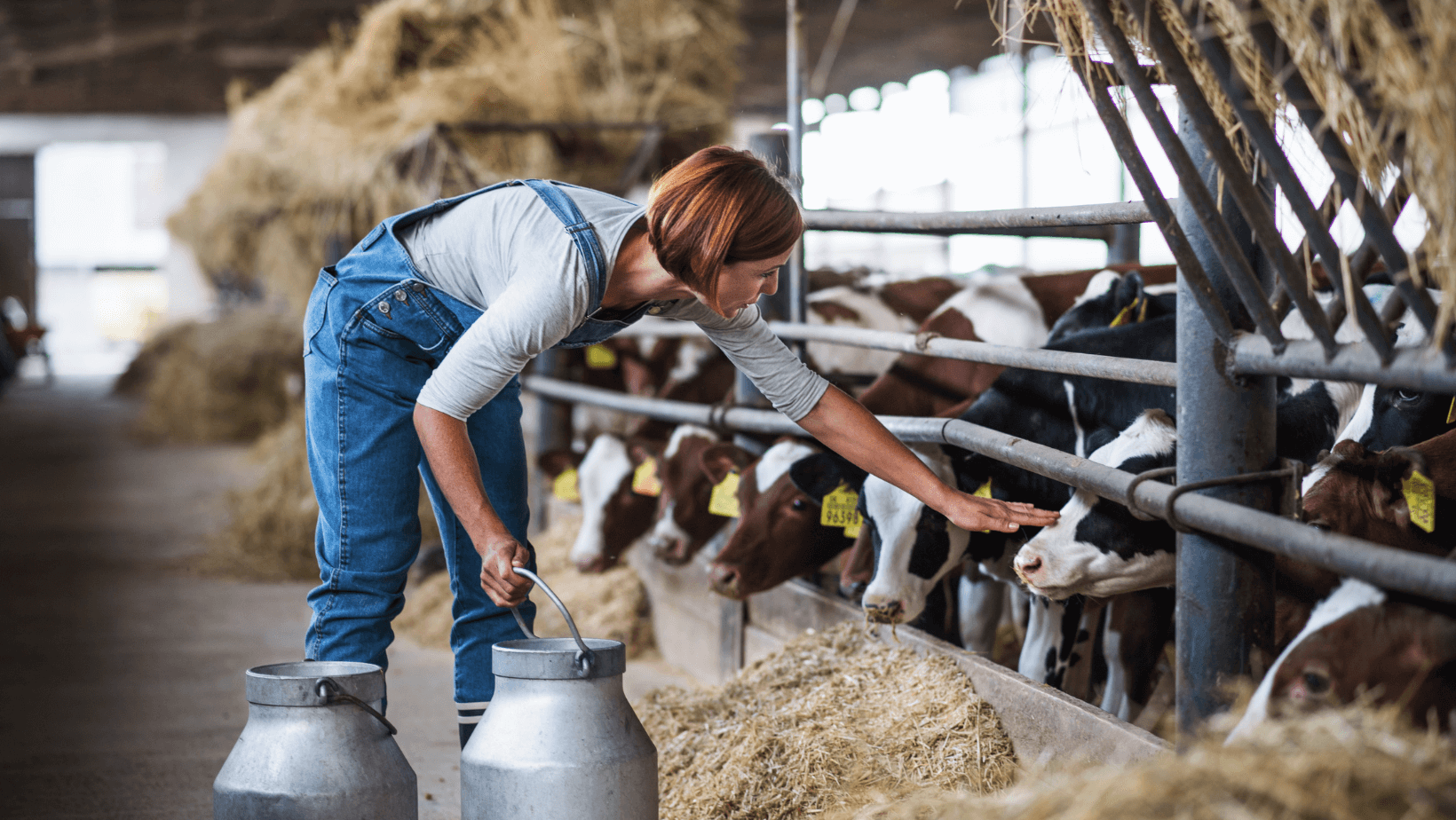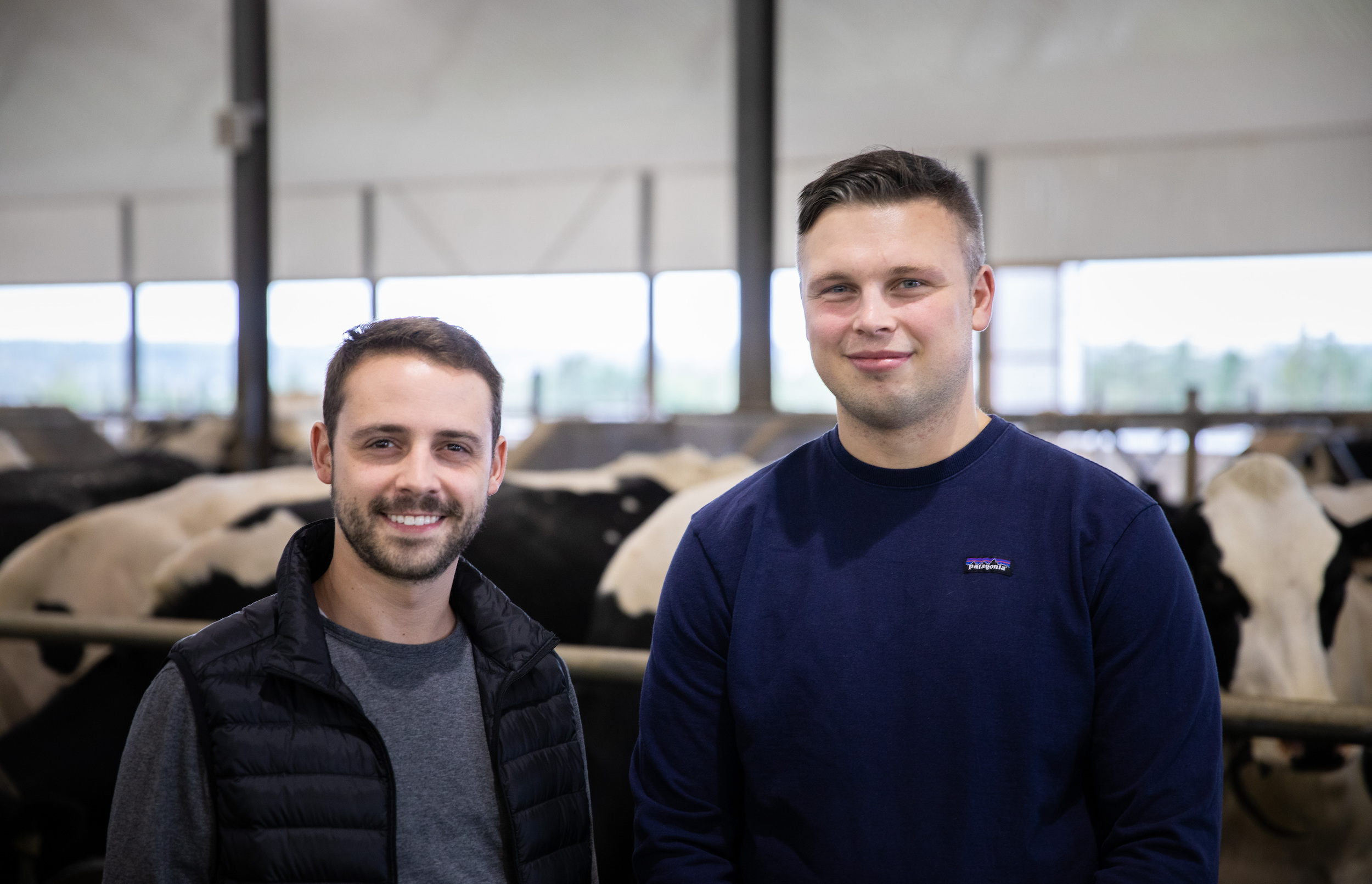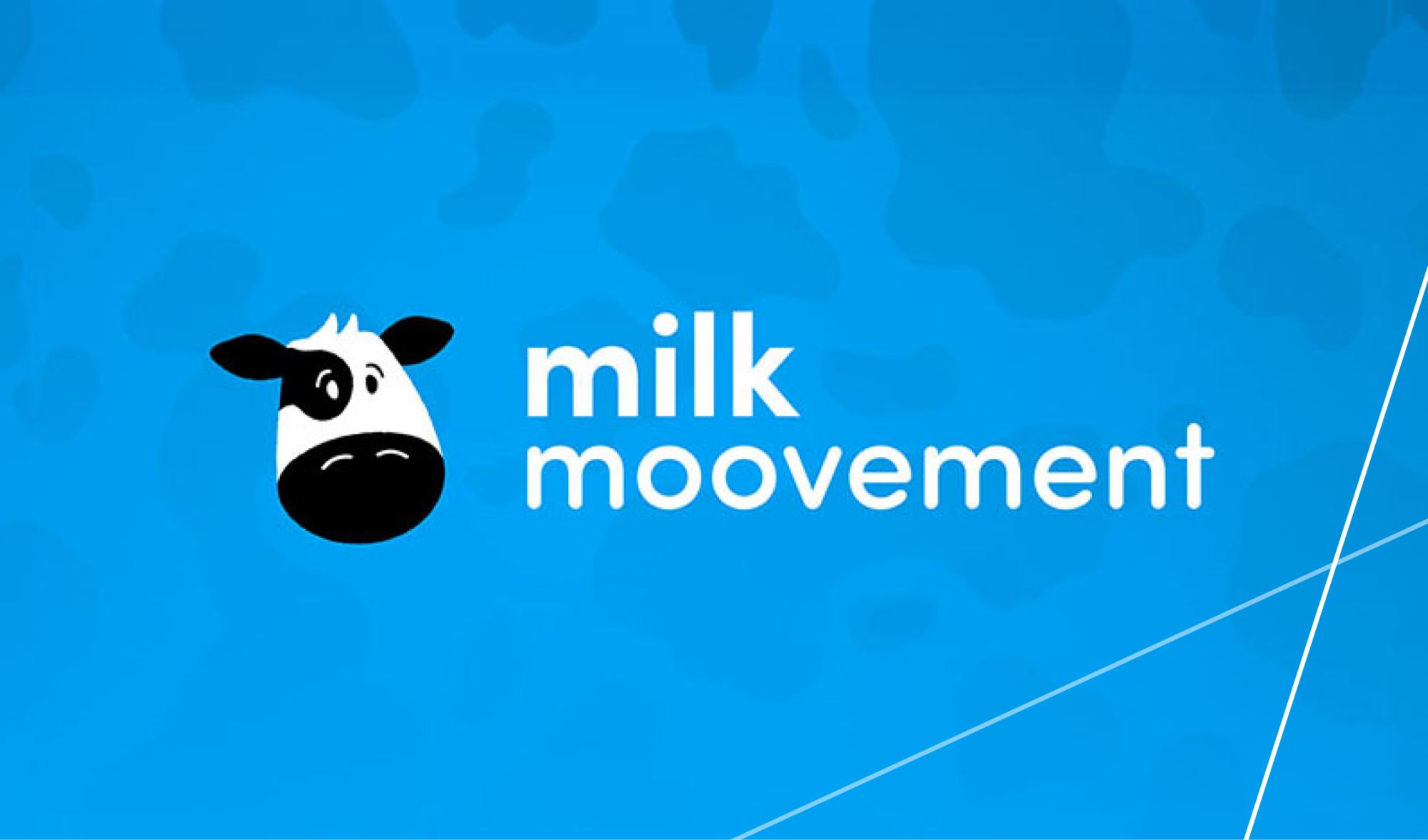The quirky startup out of Atlantic Canada is changing how raw milk travels all over the world
How does milk or cheese make its way from a farm, to the grocery store, to your kitchen table? It’s a question most Canadians never gave much thought to—until the pandemic wreaked havoc on supply chains. Suddenly, grocery staples once taken for granted were difficult to find, and everyday consumers got a crash course in what happens when supply chains break.
Canadian startup Milk Moovement is in the business of updating those supply chains for the modern age, and making sure dairy products efficiently make their way from cow to your kitchen. The innovative tech venture, based in Halifax, is transforming the staid dairy industry through the use of powerful reporting, real-time data, and easy-to-use software. Their clients include all stages of the raw milk supply chain, from farmers to cooperatives, transporters, and plants.
Supply chains don’t have to be a snooze
Dairy supply chains, while vitally important, don’t exactly get most people excited. It would’ve been easy for Milk Moovement co-founders Robert Forsythe and Jon King to settle on a ho-hum name and brand personality, but they did no such thing.
“Jon was very wise to say software is boring—let’s have a little bit of fun with it and make people smirk or laugh,” says Forsythe. “But then it took on a life of its own where people who weren’t in dairy or the tech space at all would recognize our brand or come up and compliment us on it.”
Aside from the obvious pun in their moniker, the first thing you’ll see as their website loads is an animated cow—the same one featured in their logo—doing an arm wave. Their primary brand colour is a shade of bright blue, and their blog is titled Dairy Diary, which boasts the company is “udderly devoted to the [dairy] space and the hard working folks involved.”
“When we’re recruiting top talent, executive talent from all over the world, our branding opens the door and piques people’s interest.”
“The biggest benefit has actually been recruiting and talent,” says Forsythe. “When we first started the company, some investors warned us that there’d be 10 to 20 per cent of the workforce not interested in working for us. That’s just the nature of the work that we’re in. But when we’re recruiting top talent, executive talent from all over the world, our branding opens the door and piques people’s interest. And once they get in the door, they realize we’re solving a real need and this is a really cool opportunity.”

Dairy is a big industry with big tech challenges
In general, food supply chains are complex creatures, but dairy is even more complicated. “It’s a supply chain with unique, specific challenges predominantly because there’s a lot of product moving 24-7 with a short shelf life, and a lot of different parties involved throughout the process,” says King.
“Typically, food supply chains are about five years behind the market in terms of technology, and dairy is about five years behind that.”
It’s also a practically old-as-time industry that often has a traditional mindset to match. Milk Moovement’s challenge wasn’t just getting clients to adopt their software—it was to get clients to adopt any software. “Typically, food supply chains are about five years behind the market in terms of technology, and dairy is about five years behind that,” says King. “Before us, it was phone calls, emails, text messages, and, in some cases, faxes being used to communicate information between parties.”
The technology that had made its way into the industry prior to Milk Moovement hadn’t exactly won users over, either. “In the 2000s and early 2010s, dairy started to see a lot of off-the-shelf warehousing and transportation solutions taken from other industries and wedged in the dairy sector,” explains King. “Ultimately, time and time again, that proved to be a very large challenge and a lot of big players went back to pen and paper.”
This is because dairy transport has to be concerned with both quality and quantity of products, and often there are many origins that need to be included in one pick-up or destination along a route. “We were successful because we built something truly just for the dairy space that could solve all its unique quirks and then also provide optimization recommendations to help the industry accelerate,” says King. These include instant access to pick up and drop-off data, detailed route info in real time, the ability to track driver locations, route optimization, APIs to receive real-time lab results, and the ability to securely share files and collaborate with other stakeholders in the process, among other features.

Rob Forsythe, CEO & Co-founder, Milk Moovement (left) and Jon King, CPO & Co-founder, Milk Moovement
Starting a mental health moovement for farmers
Milk Moovement goes beyond supply chain management to give back to the dairy community. The startup’s “Mental Health Moovement,” in partnership with the National Farmer Mental Health Alliance, spotlights mental health challenges faced by farmers and provides free group sessions with an agriculturally-trainer social worker.
“Farmers are four to five times more likely to commit suicide and deal with an incredible amount of chronic stress compared to the general population.”
“Farmers are four to five times more likely to commit suicide and deal with an incredible amount of chronic stress compared to the general population,” says Forsythe. “When it was brought to my attention, I knew these were the hardest working people and it was devastating to know they’re going through so much.”
As it turns out, one of their employees was able to connect the co-founders with an organization that specializes in mental health for agricultural workers. With their help, Milk Moovement has produced webinars on subjects ranging from work-life balance for farmers to being a woman in agriculture and succession planning.
“I’ll also be honest, in some ways our focus on people also worked as a strategy. We saw our competition focusing so much on just the business side of things, and not the people behind these businesses,” says Forsythe. “Just like with our branding, we’re all about bringing the personal aspects into software because software is boring and we wanted to humanize it.”
To accelerate or not to accelerate?
Milk Moovement is a startup accelerator pro, having been through three different accelerator programs. “Three accelerators is probably a lot, but we did each one for a very specific purpose,” says King. They started out with Propel in Atlantic Canada, which they describe as a program geared more toward entrepreneurs than ventures themselves.
“But really getting to know who you are as a founder and what work you need to do to propel your business forward is really important,” says King.
The duo then looked to the U.S. and around the globe for the biggest ag-tech accelerators. They partook in two of these, Food-X and Techstars Farm to Fork, one to get a better understanding of what being part of the food supply chain business landscape looks like, and the other to help land big partners and commercial deals, as well as fundraise.
“There are a lot of mistakes you can make in those early days that become very, very expensive down the line.”
Their advice to other entrepreneurs deciding on an accelerator program? “You have to have a real understanding of what phase your company is in and what help you’re going to need,” says King. He explains there are two core types of accelerators: programs to grow individuals and entrepreneurs, and ones that are more geographically based, typically with an industry niche. “For first-time founders, accelerators that take an equity stake are often seen as expensive capital, but there are a lot of mistakes you can make in those early days that become very, very expensive down the line. So it’s worth it.”
King says startups should look to more niche accelerators when they’re ready to scale. “This is when you want to pull in more customers and make connections within a specific ecosystem. Look for those that have no or little concern about only doing business within Canada’s geographic boundaries.”
“If an accelerator is in both the entrepreneurial and industry niche camps, then it’s in neither, “ says King. “It’s an either-or situation.”
Banking beyond bank accounts
Milk Moovement credits RBCx with being much more than a banking partner on their path to becoming legen-dairy. “Not all banks are equal. It’s about networking and relationships, as well as mentoring and advice,” says Forsythe. “When you’re a first-time founder, you need people to bounce things off of, and that’s what RBCx has been for us. It’s less about banking services or access to capital.”
He says his RBCx Relationship Manager, Lorrie McCarthy’s, ability to connect him with like-minded startup founders across the country to discuss issues like data security is an invaluable “fast track for advice,” and was also a “fast track for networking” when Milk Moovement was fundraising.
“It’s very clear that we’re partners and it’s very clear they want us to succeed,” says Forsythe. “There’s empathy for what us startups are going through.”
To learn more about Milk Moovement, visit milkmoovement.com
RBCx backs some of Canada’s most daring tech companies and idea generators. We turn our experience, networks, and capital into your competitive advantage to help drive lasting change. Speak with a RBCx Technology Advisor to learn more about how we can help your business grow.

